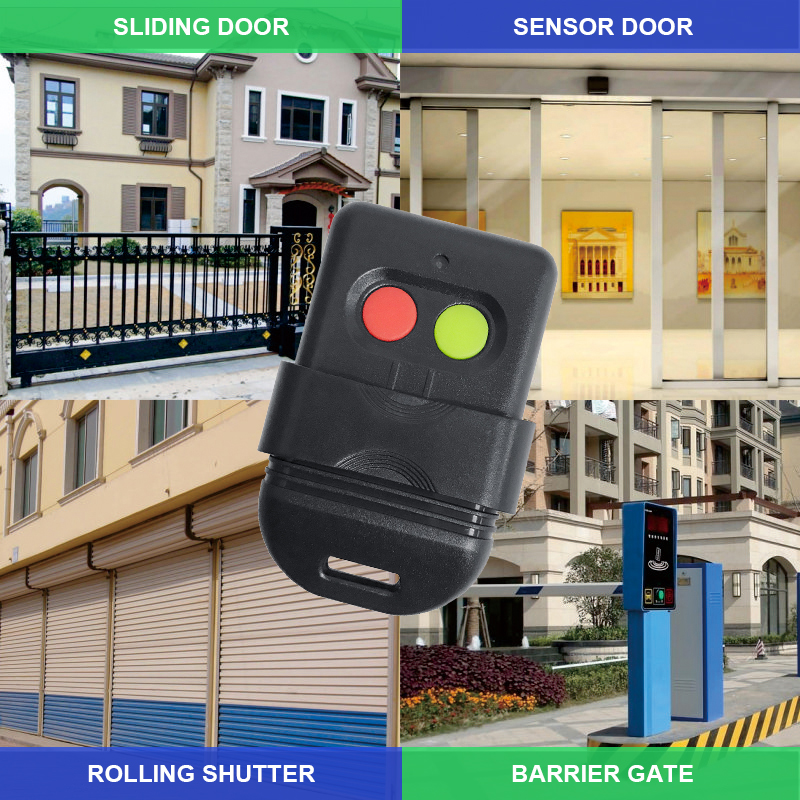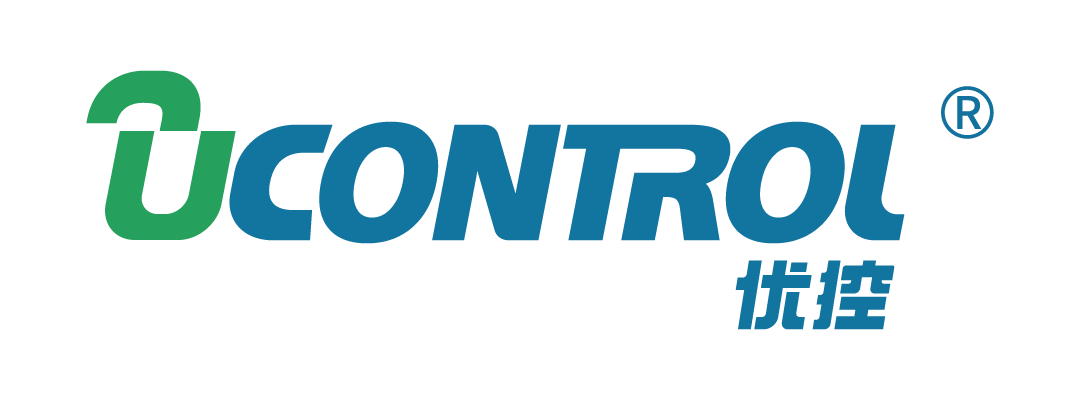Introduction
As an essential part of the garage door system, the quality and durability of the garage door remote control directly affect the user experience and system reliability. With technological advancements and improved living standards, the functions and designs of garage door remote controls have been continually optimized. However, the choice of materials and manufacturing processes remains crucial in determining their performance and lifespan. This article will explore whether garage door remote controls use durable materials and whether their manufacturing processes are reliable from aspects such as material selection, manufacturing processes, testing and certification, market status, and future development.

Material Selection for Garage Door Remote Controls
The choice of materials for garage door remote controls directly impacts their durability and service life. High-quality materials can significantly enhance the remote control's wear resistance, impact resistance, and environmental adaptability, ensuring its normal operation under various conditions.
Plastic Housing
Most garage door remote controls use plastic materials for their housing. Common plastic materials include ABS (Acrylonitrile Butadiene Styrene) and PC (Polycarbonate). These materials have the following characteristics:
· ABS Plastic: ABS plastic has good mechanical properties and impact resistance, strong wear resistance, and is suitable for making the housing of garage door remote controls. ABS plastic also has excellent molding and processing performance, allowing for complex designs and fine appearances.
· PC Plastic: PC plastic has higher strength and toughness, good heat resistance, and cold resistance, making it suitable for remote control housings with higher requirements. PC plastic is highly transparent and can be used for making transparent buttons or windows.
Circuit Board Material
The internal circuit board of the garage door remote control is usually made of FR-4 material, which is a glass-reinforced epoxy laminate that offers excellent mechanical strength and electrical performance.
· FR-4 Material: FR-4 material has good heat resistance and moisture resistance, maintaining stable performance under various environmental conditions. Its excellent electrical insulation ensures the stability and safety of the remote control's circuitry.
Button Material
The buttons of garage door remote controls are typically made of silicone or rubber, materials known for their good elasticity and durability.
· Silicone: Silicone buttons are soft and comfortable to the touch, with advantages like high and low temperature resistance, aging resistance, and corrosion resistance, making them suitable for various climatic conditions.
· Rubber: Rubber buttons have high wear resistance and compressive strength, suitable for remote controls that are frequently used.
Battery Material
The power source for garage door remote controls is typically lithium batteries or alkaline batteries, both of which have long service lives and stable voltage output.
· Lithium Batteries: Lithium batteries have high energy density and long life, suitable for remote controls used over long periods.
· Alkaline Batteries: Alkaline batteries are cost-effective, with moderate energy density, suitable for general household use remote controls.
Manufacturing Processes for Garage Door Remote Controls
The manufacturing processes of garage door remote controls directly affect their performance and quality. Advanced manufacturing processes can ensure that the remote control functions correctly and improve its reliability and durability.
Injection Molding Process
The housing of garage door remote controls is typically made using the injection molding process, which involves heating and pressurizing plastic materials into a mold to form the housing.
· Precision Injection Molding: Precision injection molding ensures the dimensional accuracy and surface quality of the housing, avoiding defects like burrs, bubbles, and deformation.
· Two-shot Injection Molding: Two-shot injection molding allows for the combination of different colors and materials in one molding process, enhancing the aesthetics and functionality of the remote control.
SMT Placement Process
The circuit board of garage door remote controls is usually assembled using Surface Mount Technology (SMT), a process that involves mounting components on the circuit board using automated equipment.
· High-precision Placement: High-precision placement ensures the positioning accuracy and soldering quality of components, improving the reliability and stability of the circuit board.
· Automated Production: Automated production lines increase production efficiency, reduce human errors, and ensure the consistency and quality of each remote control.
Keypad Printing Process
The buttons of garage door remote controls are typically printed using screen printing or pad printing techniques to apply characters and patterns to the button surface.
· Screen Printing: Screen printing is suitable for mass production, achieving high-quality character and pattern printing with advantages like wear resistance, water resistance, and oil resistance.
· Pad Printing: Pad printing is suitable for printing on complex surfaces, achieving high precision and high-contrast printing effects.
Testing and Certification of Garage Door Remote Controls
To ensure the performance and quality of garage door remote controls, manufacturers must conduct a series of tests and certifications. These tests and certifications are usually carried out by independent third-party organizations to ensure the fairness and authority of the results.
Performance Testing
Performance testing for garage door remote controls includes functional testing, environmental testing, and lifespan testing.
· Functional Testing: Tests whether the remote control's various functions, such as signal transmission distance, response speed, and button sensitivity, are normal.
· Environmental Testing: Tests the remote control's performance under various environmental conditions, such as high temperature, low temperature, humidity, and vibration.
· Lifespan Testing: Tests the remote control's service life, including button lifespan, battery lifespan, and circuit board lifespan.
Safety Certification
Safety certification for garage door remote controls mainly includes electrical safety certification and electromagnetic compatibility certification.
· Electrical Safety Certification: Ensures that the remote control's electrical design and manufacturing meet relevant safety standards, preventing electric shocks, fires, and short circuits.
· Electromagnetic Compatibility Certification: Ensures that the remote control does not produce electromagnetic interference with other devices and is not affected by other devices, ensuring its normal operation.
Common Certification Bodies
Common certification bodies include:
· UL (Underwriters Laboratories): A reputable certification body in the United States, providing safety testing and certification services.
· TÜV (Technischer Überwachungsverein): A reputable certification body in Germany, providing safety and quality certification services for various products.
· CE Certification: A mandatory certification in the European Union, indicating that a product complies with EU safety, health, and environmental requirements.
Market Status and Development Trends
Market Status
Currently, the market for garage door remote controls features many well-known brands and manufacturers, such as LiftMaster, Chamberlain, Sommer, and Nice. These brands' products typically use high-quality materials and advanced manufacturing processes, and they undergo rigorous testing and certification to ensure their performance and quality.
Development Trends
With continuous technological advancements and evolving user needs, the materials and manufacturing processes for garage door remote controls are also progressing. Future development trends for garage door remote controls mainly include:
Intelligence
With the development of the Internet of Things (IoT) and artificial intelligence, garage door remote controls will become more intelligent. Future remote controls may use smart algorithms for self-learning and optimization, enhancing usability and safety, and allowing integration with smart home systems for linked control.
Eco-friendly Materials
Future garage door remote controls will increasingly use eco-friendly materials to reduce environmental impact. Biodegradable plastics and recycled materials will become major choices, ensuring the performance of the remote control while meeting environmental protection requirements.
High Protection
Future garage door remote controls will have higher protection capabilities to adapt to various complex environments. For example, they could have enhanced waterproof, dustproof, and shockproof abilities, ensuring normal operation in harsh environments.
Standardization
As the garage door remote control market continues to develop, various countries and regions will further promote the establishment and improvement of relevant standards to ensure the performance and quality of remote controls. Additionally, the harmonization and unification of international standards will become a future development direction, promoting the integration of global markets.
Conclusion
As an essential part of the garage door system, the materials and manufacturing processes of garage door remote controls directly impact their performance and quality. By selecting high-quality materials and using advanced manufacturing processes, garage door remote controls can maintain excellent performance and a long service life under various environmental conditions. To ensure product quality and safety, manufacturers must conduct rigorous testing and certification, ensuring compliance with relevant safety and protection standards.
In terms of market status, many well-known brands and manufacturers offer high-quality garage door remote control products that meet user needs. In the future, with continuous technological advancements, garage door remote controls will develop towards intelligence, eco-friendly materials, high protection, and standardization, providing users with safer, more convenient, and efficient usage experiences.
In practical applications, users should comprehensively consider the material selection, manufacturing processes, performance testing, and safety certification of garage door remote controls to choose the product that best meets their needs, ensuring optimal long-term usage effects.

-
Office ViewQinuo Electronics Co., Ltd.was founded in 2009,it is a high-tech company that integrated R & D, manufacturing, sales and service for 15 years,which is mainly specialized in providing sensors of automatic door, control system of door and gate, car key remote, auto parts etc. The company currently has four independent brands: U-CONTROL, U-SENSORS, U-AUTOGATES and U-AUTOKEYS.
-
got questions? call us
+86 13960286508
-
fax :
+86 595 22901208 -
Email :
[email protected]
-
address
- No.991 Xingxiu Road,Taiwanese Investment Zone, Quanzhou, Fujian Province,P.R.China











